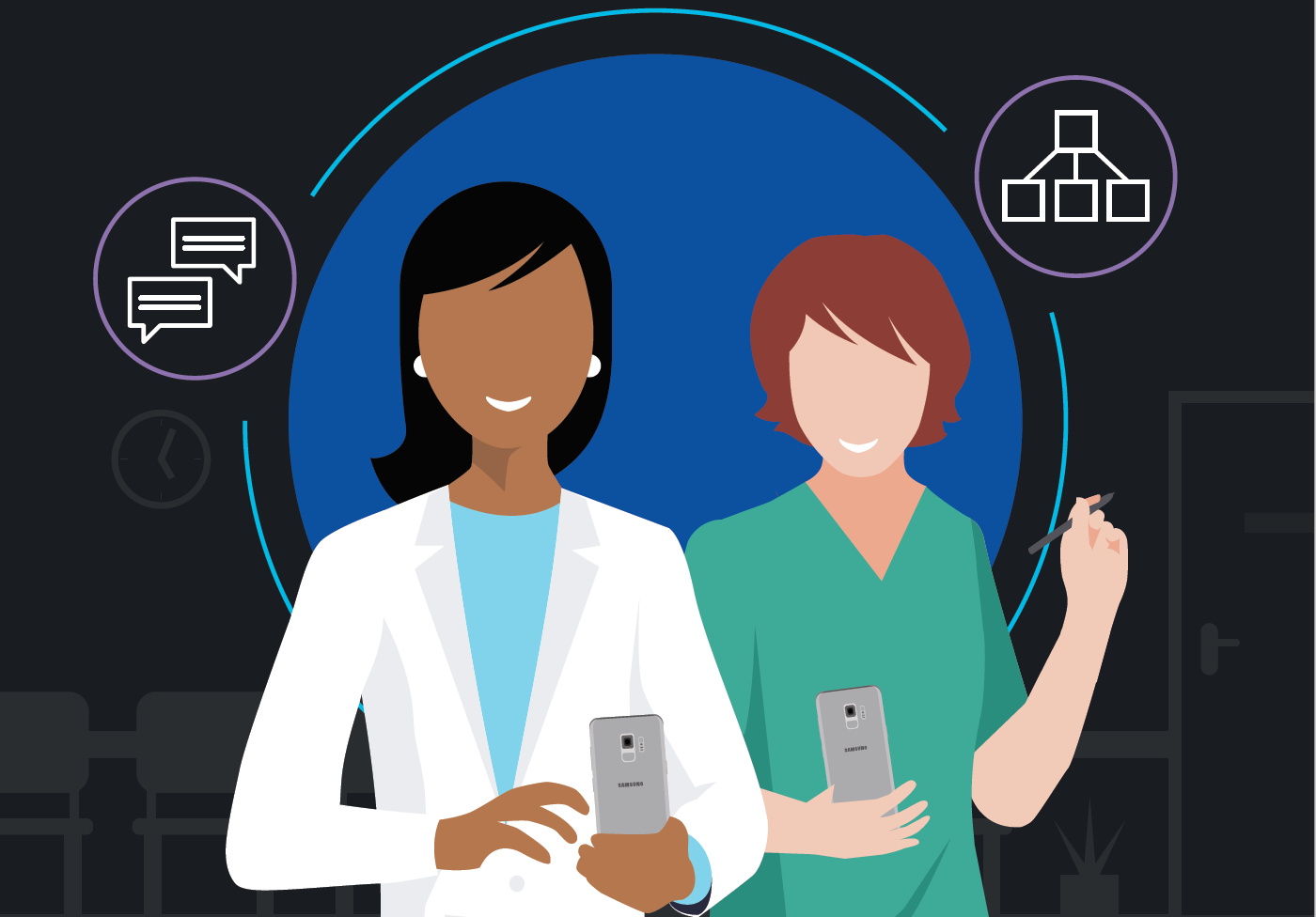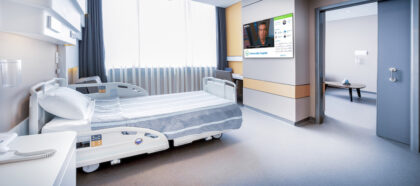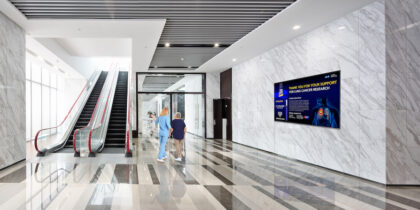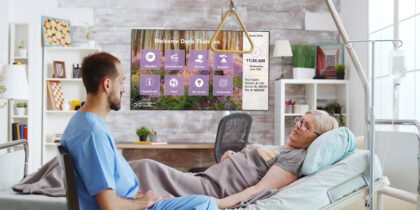The area of nursing communications is getting more attention every day — and for good reason. Hospital leader decision-making is heavily impacted by nurse-to-patient ratio statistics, but there are more fundamental questions to be answered, especially around the importance of communication tools that improve patient care and hospital staff productivity.
In particular, powerful unlocked smartphones such as the Samsung Galaxy Note9 with Samsung DeX‘s productivity-enhancing technology can serve as device replacements for PCs and other legacy devices that nurses use today. By replacing their current menu of disconnected, disparate technology tools with lightweight, all-in-one tools such as the Note9, hospitals can slash hardware and management costs while empowering their front-line staffers with better, HIPAA-compliant access tools.
Understanding the Entrenchment of Legacy Devices
It may be hard to believe, but 90 percent of hospitals still utilize pagers. Moreover, the adoption of PCs by doctors and nurses to access and update patient electronic health records (EHRs) is still relatively new in many clinics — decades after internet-connected PCs appeared in the offices of other industries. And the move to PCs in hospitals is still very much a work in progress, with many clinicians disapproving of them, as explained in a recent New Yorker magazine article bluntly titled, “Why Doctors Hate Their Computers.”
How to Create a Mobile-First Hospital
Get your free guide to modernizing clinical communications with smartphones. Download Now
Healthcare has a few good reasons for being such a technology laggard:
- Cultural Norms. Healthcare is a slow-moving industry. Yes, pagers may seem outdated to many other sectors, but this is an industry where faxing is still the status quo — and plenty of people are perfectly okay with that. While healthcare professionals may be familiar with smartphones in their personal lives, their work is different and still largely populated by technology of the past.
- Maintenance Factors. With batteries that can go weeks without being changed, pagers are easy to maintain. Similarly, PCs, even if they are not the easiest to use nor manage, are familiar to both staffers and IT teams. Clinicians are used to not worrying about their communications devices all through their long shifts.
- Reliability. Anyone who’s ever traveled to a remote area, or even into the wrong corner of their own home, knows that cellphone service can be unreliable. This issue proves most prominent hospitals, where buildings are densely constructed with a mix of materials that obstruct cellular coverage. Paging networks have more broadcast power and fewer devices on the network, providing clinicians across the hospital landscape with life-saving reliability that’s critical to their work.
- Group Messaging. More than ever, care environments require coordination across teams and specialties, meaning communication — nurse communication included — is critical. They may be clunky, but pagers provide for speedy group messaging that keeps clinical workflows functioning at optimal levels.
While all of these characteristics provide value, pagers also bring serious limitations. They can only transmit text, which slows down medical workflows as an extra step is required to view images, and they are incredibly susceptable to unauthorized interception. It’s time for medical facilities to upgrade, both for their patients’ physical and information security.
Future-Proofing Your Overhaul: the Note9 + DeX
While updating your hospital is a big project, it’s no longer optional — it’s imperative. An overhaul is necessary not only to maintain quality of care, but to avoid costly HIPAA violation fines. While, ideally, practitioners would not send protected health information (PHI) via text pagers, many still do. Additionally, it’s not uncommon for medical professionals to turn to insecure text messaging to work faster, even when that’s a direct violation of HIPAA. The solution? An updated tool that allows your nurses and staff to work in an intuitive and efficient way, without compromising security.
The Galaxy Note9 allows your staff to utilize premium smartphone capabilities with the top-notch security features that an industry as regulated as healthcare requires. There’s another feature that helps future-proof this investment: Samsung DeX, which is available on the Galaxy Note9, Note8, S9, S9+, S8 and S8+. It allows you to seamlessly alternate between mobile functionality and a complete desktop experience with multiple windows, virtual desktop infrastructure (VDI) and keyboard shortcuts using the same device.
With the Note9, your nurses and doctors will gain HIPAA-compliant bedside access to patient files, radiology images, test statuses and results, pharmacy orders and other EHRs. Its S Pen stylus makes it ideal for filling out patient forms and annotating documents on the go, as well as taking quick handwritten notes. Finally, its battery lasts all day and then some, so you can rely on it through long shifts.
Consolidating onto the Note9 means lower hardware costs, and a much lower Total Cost of Ownership (TCO) for the healthcare organization. Because most of the time and cost around devices comes from maintaining, securing and managing them, going mobile-only with the Note9 will make your CFO and your CIO much happier.
Clinical collaboration has become much more complex for the 1.5 million nurses around the country, and they need to access information both in and out of the hospital. A flexible smartphone like the Note9 frees nurses from the burden of worrying about multiple devices and helps to address challenges around nurse-to-patient ratio statistics.
Explore cutting-edge healthcare technology in more depth by checking out our full line of healthcare solutions.









